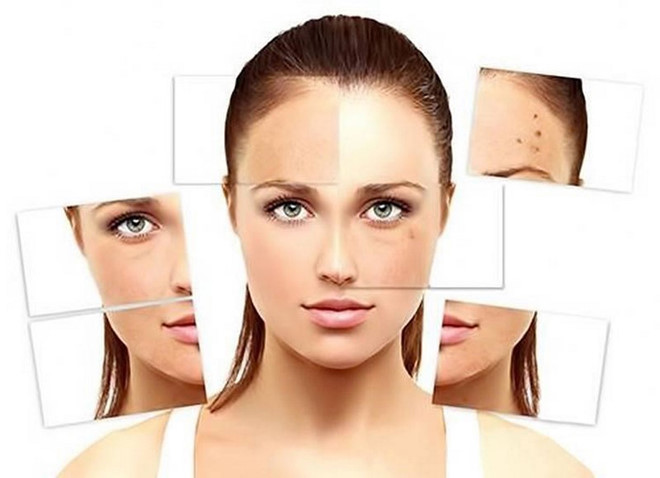Healthy skin is smooth, even-toned, firm, well-hydrated, and resistant to external factors. Many women desire this type of skin and spend a lot of money on skincare products.
However, sometimes even with a lot of spending, the skin does not have the described characteristics. This indicates that the skin is undergoing changes and deterioration. You need a comprehensive plan to restore the health of your skin.

Signs of deteriorating skin health
The pores are often enlarged, especially the ones on the cheeks below the eyes and the sides of the nose. The skin’s texture is also uneven, giving a rough feeling when touched. The epidermis layer may also undergo abnormal changes, with cell turnover occurring faster or slower than normal.
After the age of 30, changes in the skin’s structure become more evident. The destruction and reduced synthesis of collagen and elastin contribute to skin deterioration.
Wrinkles and sagging appear on the skin. The decrease in glycosaminoglycan leads to loss of skin elasticity and moisture. There are various skin conditions such as hyperpigmentation, light-induced epidermal thickening, seborrheic keratoses, seborrheic dermatitis…
What causes skin health deterioration?
– Abnormalities in hair follicles and sebaceous glands leading to excessive oil secretion.
– Exposure to sunlight affects skin cells, including abnormalities in the function of pigment cells.
– Prolonged inflammation due to acne.
– Excessive use of certain medications, such as prolonged use of corticosteroids.
– Underlying systemic diseases, immune system disorders, or injuries…

How to restore skin health?
– Cleanse the skin
Cleanse the skin, exfoliate, balance pH and moisture, control oil. This step helps the skin achieve a state of balance and prepares it for the subsequent steps of skin restoration.
– Promote epidermal renewal:
Depending on the specific condition, specific skincare products or dermatological treatments will be used. These products can be used individually or in combination, depending on the skin’s condition and underlying issues in that area.
– Regulate skin stability:
This method stimulates cell proliferation and simultaneously repairs and regulates the functions of both the epidermis and dermis.
– Stimulate the skin:
Stimulating the dermis layer enhances collagen production and reduces the activity of collagen-degrading enzymes (collagenase), making the skin firmer, more elastic, and increasing moisture retention.
– Moisturize and soothe the skin:
Moisturizing products are composed of water, lipids, and proteins in the intercellular space of the stratum corneum. They have soothing, anti-inflammatory, antioxidant properties and repair DNA.
– Avoid sun exposure and use sunscreen:
Protect the skin from the sun using physical and chemical methods, and prioritize avoiding direct exposure to sunlight.
Tips from a Dermatologist on Washing Your Face for Reducing Dark Spots
Are you washing your face regularly but still struggling with skin issues? You may want to take a closer look at your skincare routine—proper face washing is a key step in achieving healthy skin.





































